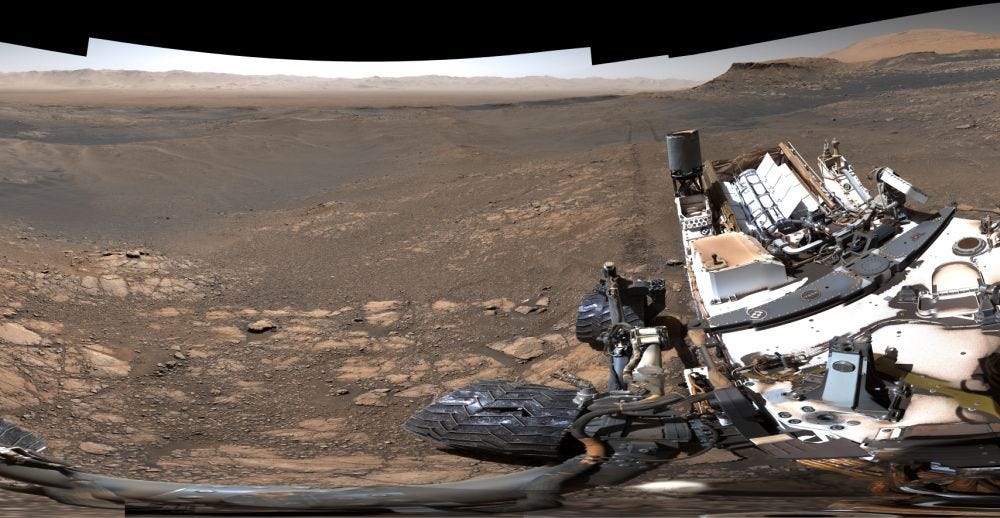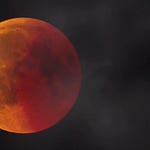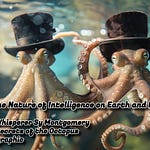In this week's episode of Astronomy News with The Cosmic Companion, we look at a massive white dwarf that may be the product of an ancient collision between stars. We also examine a new idea of dark matter – the mysterious mass holding galaxies together – before heading to Mars for a new discovery – as well as a stunning image of the Martian landscape – from the Curiosity rover. Finally, we wrap up the show with a look at Betelgeuse, and new studies looking at whether or not this red giant star is on the verge of exploding as a supernova.

The Curiosity rover recently returned its most-detailed panorama ever of the Martian landscape (click here for full photo). Image credit: NASA/JPL-Caltech/MSSS
A team of astronomers from the University of Warwick have discovered an ultramassive white dwarf surrounded by a carbon-rich atmosphere. The star was first found in data from the Gaia space telescope, and the atmosphere was examined using the William Herschel Telescope in the Canary Islands.
This behemoth of a white dwarf, they determined, is the product of the collision of a pair of smaller white dwarf stars. This finding could lead to a new understanding of white dwarfs and how they form and evolve over time.
Dark matter cannot be seen, but it makes up a far larger portion of the Universe than all stars, planets, gas clouds, and black holes combined. It is because of dark matter that galaxies do not fly apart as they spin.
Still, astronomers know little about the ultimate nature of this mysterious mass. A new study from the University of York suggests strange subatomic particles called d-star hexaquarks may have formed in the early Universe as it cooled, and is now affecting objects in a manner that we interpret as dark matter. Protons and neutrons which make up the nucleus of atoms are each composed to three quarks. This newly-postulated particle would consist of six quarks, providing its unusual properties.
The Curiosity rover on Mars has found organic materials on the Martian surface which may have been produced by ancient lifeforms. The material, called thiophenes, are usually produced by life on Earth. This is not proof of ancient life on Mars, as further studies must still be carried out to determine if these thiophenes are the product of biological or chemical processes.
NASA also recently released a new image of Mars, as seen by Curiosity. This stunning Martian landscape is composed of 1,000 separate images of Mars taken by the eight-year-old Martian laboratory.
Betelgeuse, one of the best-known stars in the sky, dimmed significantly over several months at the end of 2019, leading to speculation as to whether or not the star is about to explode as a supernova. Several astronomers and astrophysicists are studying the star, attempting to determine if Betelgeuse is on the verge of a massive eruption.
One of these new studies shows the star is warmer than would be expected prior to a supernova, suggesting a cloud of dust coming off the star may be the cause of this dimming. Betelgeuse is still expected to erupt as a supernova sometime in the next 100,000 years, but the coming supernova is not likely to occur in the near future.

Dr. Emily Levesque, next week on Astronomy News with The Cosmic Companion Podcast. Image credit: University of Washington.
On next week's podcast episode of Astronomy News with the Cosmic Companion, I will interview Dr. Emily Levesque of the University of Washington. She is one of the lead researchers on the study examining the possibility of a massive cloud of gas surrounding Betelgeuse. Be sure to tune in for this interview about exploding stars – it should be a blast!
If you enjoyed this episode of The Cosmic Companion, please download and share the episode on YouTube or any major podcast provider. For more details on space and astronomy news, please visit thecosmiccompanion.net.











Share this post